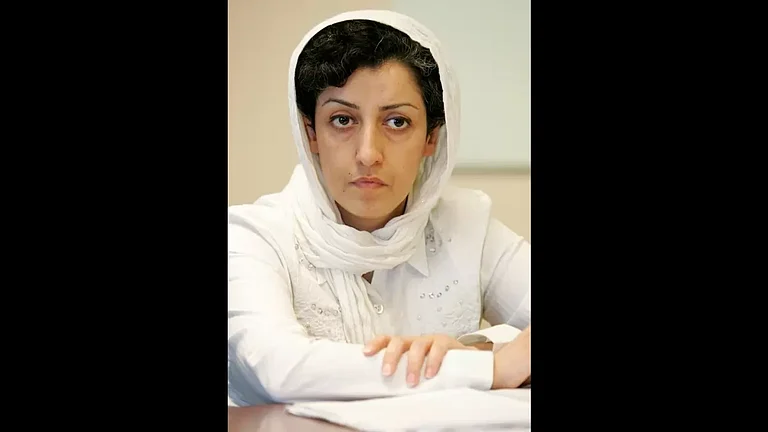The chaos, the looting, the broken water and telephone lines and possible ethnic clashes as the lid comes off the pressure cooker of emotions are just some of the formidable challenges ahead for US troops. The "smart" war plan must now recalibrate into a policing and administrative operation to bring order. The killing of Abdul Majid al-Khoei—a prominent Shia leader supported by the Americans—in Najaf a day after Baghdad fell, exemplifies the complexities of future power equations. The fierce competition for support among Iraq’s majority Shia population will have a profound effect on any future government.
The vacuum at the top must be filled immediately, say experts; and any arrangement for governance must shun the label of "Made in usa". Admittedly, President George W. Bush has to walk a fine line while putting the pieces back together. His post-war plans have already created nuanced rifts with the British, who as before, want the legitimacy of the UN to make this war more acceptable in the Arab world. Although Bush says the UN will have a "vital" role, his officials have steadfastly refused to offer specifics. But they have made clear they will call the shots in a post-war Iraq. Defence secretary Donald Rumsfeld, his deputy Paul Wolfowitz and Cheney, all want to sideline the UN—at least for now. Or limit it to a purely humanitarian role, reducing it to a bit player in the great game. An ascendant Pentagon is likely to get away by presenting the world with a fait accompli.
"Governing post-Saddam Iraq will be a highly complex and difficult task. But the Bush administration is not helping matters by going about it in a decidedly secretive fashion," says Ivo Daalder, senior fellow at the Brookings Institute. He calls it "unilateralism on steroids" because it contemplates nothing less than the wholesale takeover of Iraq, not just by the US government but by the Pentagon. He warns that such "Americanisation" will be seen by Iraqis and much of the world as an "occupation", not as liberation. "Official Washington apparently still does not realise how deep the global scepticism of its motives really is," says Daalder.
Senior Bush officials continue to adopt a spoils-to-the-victor attitude as articulated by national security advisor Condoleezza Rice last week. She said it was natural to expect that "having given life and blood to liberate Iraq, the coalition would have the leading role" in deciding the future. Wolfowitz speculated it might take longer than even six months to cede power to an Iraqi-led civilian authority which in turn would pave the way for a representative government.
The stealth operation mounted by the Pentagon to transport Ahmed Chalabi, founder of the exiled Iraqi National Congress, and nearly 500 of his lightly-armed members into southern Iraq in early April has raised suspicion among other groups that he is the Pentagon favourite. A deeply polarising figure, Chalabi is reportedly close to Wolfowitz, Richard Perle, a senior Pentagon advisor and a prime mover behind the war, and ex-cia director James Woolsey, who is expected to have a prominent role in the running of Iraq. Chalabi attended the Massachusetts Institute of Technology and Chicago University but has lived outside Iraq for 45 years trying to manage fractious opposition groups. He left Jordan under mysterious circumstances in 1989, reportedly with $70 million. A Jordanian court later convicted him in absentia, sentencing him to 22 years of hard labour for embezzlement and fraud. But his fan club extends to the far reaches of the American right.
Chalabi, perhaps attempting to show independence from his American friends and go "native", complained bitterly from Nassiriyah on a crackling phone line to cnn about the slow pace of reconstruction. He demanded to know the whereabouts of the sheriff-in-waiting, Jay Garner, a retired US general, named to run Iraq but currently operating from the Kuwait Hilton hotel. "Where is General Garner now? Why are they still in Kuwait? If you want to help Iraqi people, you must take some risks," he bellowed, immediately blowing fuse boxes at the White House. Spokesman Ari Fleischer quickly said that Chalabi was just "one name (among) many people who yearn for a free Iraq and are prepared to help make it happen".
The shape, size and structure of the Iraqi Interim Authority (IIA) will be decided by the likes of Garner who won points for feeding and protecting Kurdish refugees in northern Iraq after the 1991 Gulf War. Apart from repairing, reopening and re-establishing various Iraqi institutions—schools to hospitals to ministries—he is expected to "purge" the country of Baath Party loyalists and deciding how far and deep the cleansing must go. Senator John McCain, an influential voice on defence issues, said last week: "We de-Nazified Germany and we need to de-Baathise Iraq. Some in the CIA want the regime to continue because the trains will run on time. But that is not right."
But if Gen Garner is seen as too meddlesome, his controversial past will become a sore point in Iraq and the Arab world. Besides being an arms merchant, whose firm SY Coleman supplied the military technology that decimated the country he will now rebuild, Garner has praised the Israeli army for showing "remarkable restraint" in dealing with the Palestinians.
Eric Schwartz, a senior fellow at the Council on Foreign Relations who headed a task force on Iraq, said the US should follow the Afghan model and let the UN convene a meeting to establish the interim authority. "Despite the UN being largely in charge, the US had enormous influence in the process, demonstrating that we did not have to sacrifice our interests." If you ask the Afghans, the model is flawed because of the vacuum created by Team Bush which refused to support the deployment of peacekeeping forces outside Kabul. As a result, warlords rule the countryside, siphon custom duties, and in some cases, have started persecuting women again. Will Iraq go the same way?

























